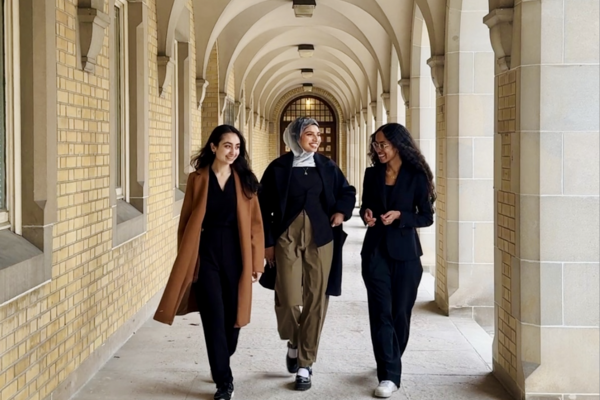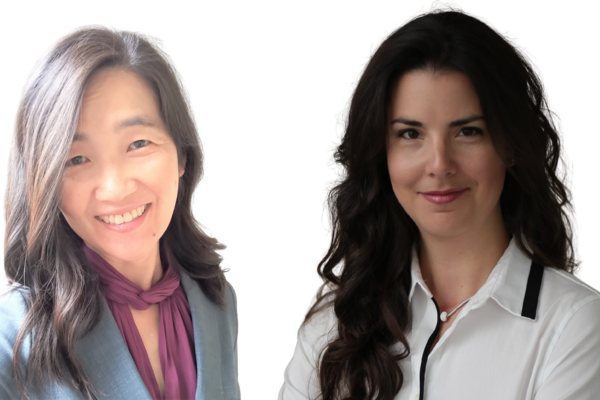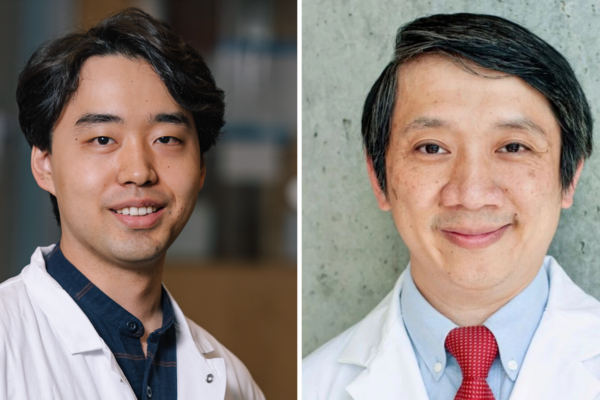Main Second Level Navigation
Breadcrumbs
- Home
- News & Events
- Recent News
- Faces of U of T Medicine: Caleigh Campbell
Faces of U of T Medicine: Caleigh Campbell
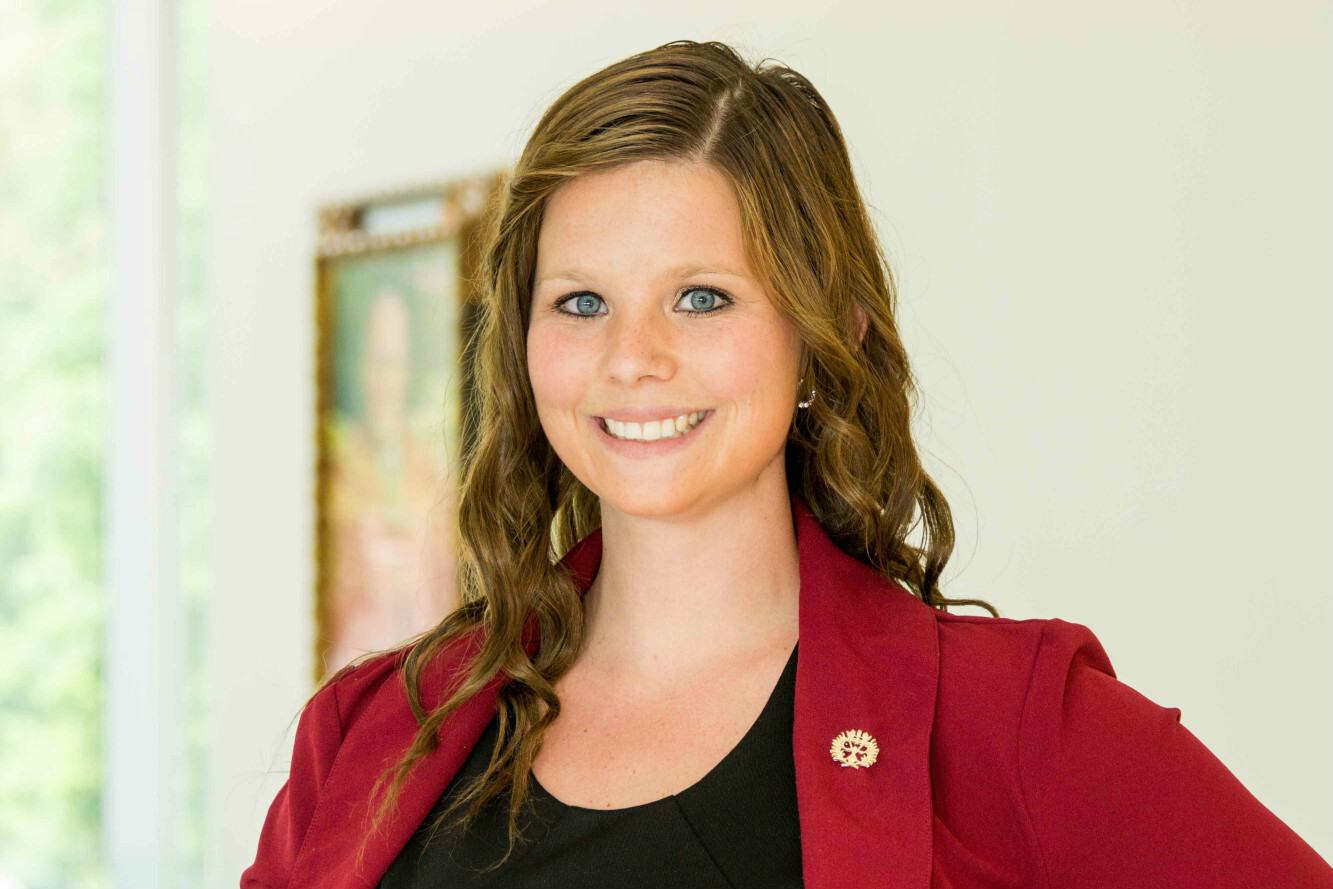
Liam Mitchell
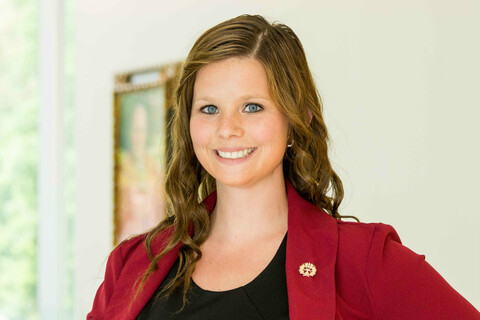
You might expect that demands of medical school would be enough for most people. Caleigh Campbell is not most people. The third year student at the Mississauga Academy of Medicine completed the requirements for the Duke of Edinburgh Gold Award over the span of 20 months. It took a lot of heavy lifting — literally — not to mention some very well-honed time management skills. She spoke to us about what motivated her to complete the program and the chance it may give her to rub shoulders with royalty.
Name: Caleigh Campbell
Program/year: Medicine, Third Year
Role/position: Recipient of the Duke of Edinburgh Gold Award.
What is the Duke of Edinburgh Gold Award?
The award is an international non-competitive programme open to people aged 14 to 25 years old. It has three levels: Bronze, Silver and Gold. Each requires an increasing amount of time commitment. For example, the Gold Award requires a minimum of 18 months, but took me 20 months to fully complete. It challenges participants to achieve personal goals in four areas: community service, skills, fitness, and adventure. The Gold Award has an additional fifth section, the Residential Project, where participants spend a minimum of five days volunteering in a community outside their own. The award emphasizes a well-rounded life and pushes participants out of their comfort zones. Once the award is complete, participants have the opportunity to attend an award ceremony. I’m quite excited because the Gold Award Ceremony is generally presided over by a member of the Royal Family (it can also be the Governor General of Canada).
What made you choose to pursue it?
Medical school is both rewarding and challenging. Our schedules can become quite demanding, and it is easy to lose sight of who you were before medicine. The award helped me set goals unrelated to medicine, and helped provide balance in my life. My days became more than just lectures and studying, I was scheduled in Olympic Weightlifting practice, club meetings and learning or creating new recipes. In turn my study time became more effective and, even though I was busy, I became more effective and productive with my time.
The second reason I choose to pursue the award was because it helped shape me as a leader and a role model. Even in my third year as a medical clerk, I feel that I'm seen as a role model by patients. The award helped develop my communication and teamwork skills as well as my self-confidence. Prior to the award, I don’t think I had ever been to a gym. But by the end, I was participating in Olympic Weightlifting sessions three to four times a week, and now I’m looking into kickboxing as a new challenge. The award helped support me to overcome the challenges associated with getting fit, and now I feel confident using my experiences to help motivate patient with their physical fitness goals. For me the award embodied what it means to be a role model, and I wanted to challenge myself to complete it to make me a better physician.
Of the five different sections required for the award (Service, Skills, Physical Recreation, Adventurous Journey, and Residential Project), which was your favourite and why?
I think my favourite section of the Award was the Adventurous Journey. For my journey I went on a five day canoe trip through Algonquin Park with six strangers and a guide. Throughout my life, I had only canoed leisurely with my family — nothing strenuous. On the first day of the journey, I quickly found that I actually had the most canoeing experience of all the participants and so I quickly and willingly stepped up as a mentor to teach basic techniques. The journey was a combination of canoeing and portaging, and just as I had stepped up to help teach techniques, one of the other participants stepped up and teamed up with me to double portage. A double portage is where you carry a canoe pack (weighing up to 40lbs!) and a canoe through a portage trail. My partner walked slowly beside me, coaching and encouraging me not to give up, and then would take over for me when I needed a break. What I love best about the journey was that even though we were all strangers from the beginning, with ages spanning from 16 to 24, we became a team that succeeded and failed together. We were all there to support each other and to enjoy the experience. Those five days are ones I’ll never forget, and that taught me that no matter what obstacle arise in the future, success is always a possibility with teamwork.
How has this experience influenced your long-term career plans?
For a long time I’ve had my eyes set on a career in paediatrics because I think that there’s nothing more rewarding than the opportunities physicians have to positively impact a child’s life. In just over a year I’ll be settling into my residency and I’d love to set up a group to help local adolescents and young adults experience the opportunities the award can open up for them. I can’t say where I’ll end up after residency, but I know two things: my medical practice will focus on children’s health, and I’ll still somehow be involved with the award.
What's your favourite thing about the Faculty of Medicine?
My favourite thing is about the Faculty of Medicine is being a Mississauga Academy of Medicine (MAM) student. In my opinion MAM provides a perfect blend of academics, research and community medicine. During my pre-clerkship I had amazing opportunities to observe physicians and residents downtown and in Mississauga. Looking back over the past year I can say that my clerkship experiences have been nothing short of exceptional. The clinical environment is positive and preceptors to teach. My other favourite thing about MAM is the family feel to the Academy. From students, administrator, hospital preceptors — all the way to the janitorial staff — everyone is so welcoming and supportive. If I could go back, I wouldn’t change my decision to select MAM as my campus preference.
Faces of U of T Medicine introduces you to some of the interesting men and women studying in the Faculty of Medicine. From advising political leaders to providing care to Toronto’s most vulnerable populations, our students are making an impact on communities at home and around the world. Do you have an interesting story to share? Send us an email at medicine.communications@utoronto.ca.
News
